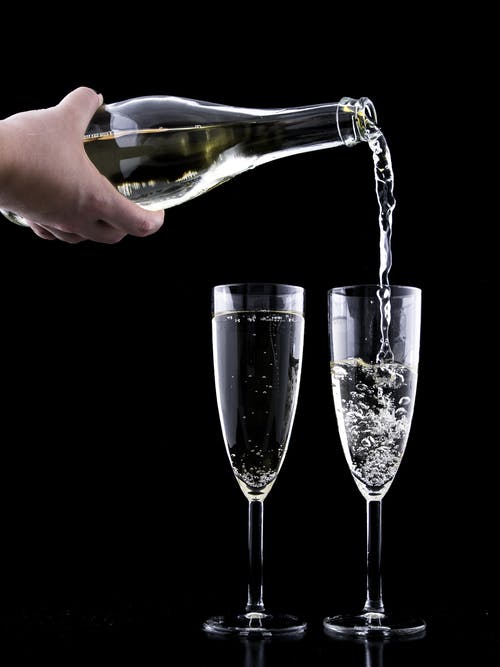Posted: Sep 20, 2021

If you've ever popped a bottle of bubbles during a celebration, you know that there's a specific type of sparkling wine that is seen as best for special occasions — Champagne — and there's good reason for that.
According to Taste Of Home, all champagnes classify as sparkling wine but not all sparkling wines can be labeled as Champagne. Here's where things get tricky. To be able to call a bottle of sparkling wine "Champagne," there are specific conditions that a wine producer must meet. The predominant condition is that a bottle of Champagne must be produced in the Champagne wine region of France. Champagne also undergoes an extra stage of fermentation which distinguishes it from its sparkling wine counterparts and accounts for its hefty price tag.
The only exception to this rule? Per The Spruce Eats, any American wine produced before 2006 that called itself "champagne" was allowed to keep the esteemed label as long the wine's true origin was mentioned on the label.
One country, however, is rocking the bubbly boat. Earlier this year, Russia announced that it was going to change the definition of champagne in the country and unsurprisingly, not everyone is happy about it.
In a new law signed by Vladimir Putin, any wines imported from France — Champagne or not — must call themselves sparkling wine and not Champagne when sold in Russia (via NPR). According to the new Russian definition of Champagne, only sparkling wines produced in Russia can use the sought-after label.
Comité Interprofessionnel du vin de Champagne (CIVC), a group that regulates all things champagne and promotes the beverage across the world, felt a certain type of way about the new Russian law, The Guardian reports. According to the CIVC co-presidents, the use of the Champagne label is legally protected in over 120 countries, so the Russian law comes as a bitter surprise. "Depriving the people of Champagne the right to use their name is scandalous. It's our common heritage and the apple of our eye", they argued.
The Guardian found that leading Champagne producer Moët Hennessy threatened to stop selling champagne in Russia altogether rather than call their prized product a sparkling wine. Only a few days later, however, Moët Hennessy decided to comply with the new Russian law, complete with brand new bottle labels for Russian eyes.
By Khyati Dand
09-20-2021
Source and complete article by: mashed.com
Go-Wine's mission is to organize food and beverage information and make it universally accessible and beneficial. These are the benefits of sharing your article in Go-Wine.com


The Wine Thief Bistro & Specialty Wines is a locally owned small business in downtown Frankfort, IL offering world class wines in a relaxed, casual gathering spot for friends and family. Offering world class virtual tastings and touchless carryout.
https://www.twtwineclub.com/aboutus
Go-Wine 25 Great Wineries in US selection prioritizes quality, value and availability.
www.go-wine.com/great-wineries-in-america
Tasting wine is a nice experience, but visiting the places in which wine is made is a magic moment. Available in New York City for touchless pickup.